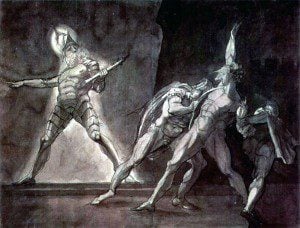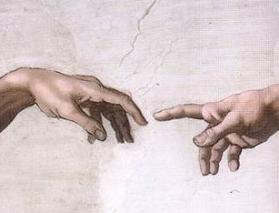
I have always been struck by Hamlet’s statement to his peer, Horatio, in Shakespeare’s play Hamlet: “There are more things in heaven and earth, Horatio, than are dreamt of in your philosophy.”
Prince Hamlet has to deal with the appearance of his deceased father’s apparition which he cannot explain away, nor the dead king’s claim that his own brother and his own wife, the queen, murdered him and usurped his throne.
It is not only the characters in Shakespeare’s play that have to wrestle with experiences that defy empirical verification and comprehension; we all have to deal with such challenges. While we should guard against labeling everything that we cannot explain a spiritual reality (or deus ex machina), we should not explain away those things that defy our reasoning ability and present understanding as fairy tales. Certainly, we should seek to develop as much as possible a comprehensive view of reality involving philosophy and scientific exploration. However, is it not as much folklore to think we will ever attain total comprehension? Will we not have to appeal to metaphysical claims that are beyond empirical proof as we present systems of thought that we maintain have more compelling explanatory power? (See for example Denis Noble’s discussion of how his systems biological approach and Richard Dawkins’ gene-centered approach are beyond empirical science: Denis Noble, The Music of Life: Biology Beyond Genes page 13; see also my post on “Science, Metaphysics, and Metaphorical Ladders: When Science is Theology“).
Maybe the day will come when there will be no more ghosts or spirits left, but maybe not. Hamlet’s royal father’s ghost appeared to reveal treachery, murder and adultery in his kingdom. Were and are those acts themselves figments of the imagination, or is there anything to be said today for labels like sin, guilt, and judgment? Should we reduce such ethical claims to biological drives and view God and justice as mere heuristic devices, or does ethics transcend biological determination? If ethics does not transcend material causes, are human freedom and identity not apparitions?
















